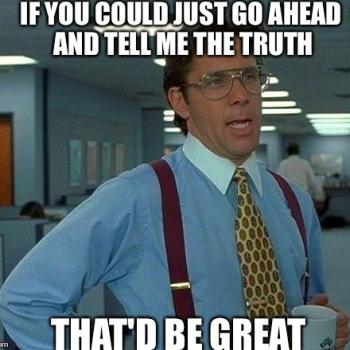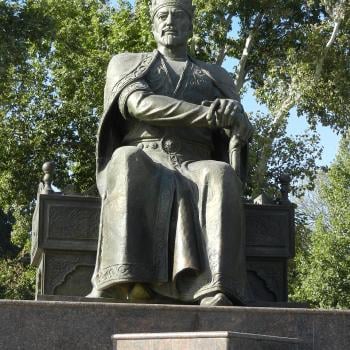Greg: Richard Niebuhr's brother Reinhold is probably better known these days, and the favorite theologian of President Obama. I've told my students I thought it would be fun to be a fly on the wall at a Niebuhr Thanksgiving dinner. How would you contrast the two brothers and their beliefs?
Tim: Like you, I would love to have been present at a Niebuhr family gathering. What conversations they may have had! But, I suppose their conversations, like the ones around most of our Thanksgiving tables, may not have focused on deep theological debates so much as on the family matters of parents, children, and their various accomplishments and challenges. Nevertheless, it is clear that Reinhold and Richard had plenty to talk about in the theological realm. They rarely aired their disagreements in public, however, which makes me wonder about how open they were about them in private as well.
One of the few places where they debated in public was an exchange in 1932 on the pages of the Christian Century. Ostensibly it was a discussion of the American response to current events in Asia. But, in fact, it was a debate about the nature of God and the limits of human agency. Reinhold had turned his back on the optimism of liberal theology, but remained indebted to its idealism. For him, God was the ideal toward which humans must strive, though they could never reach it. Richard, however, rejected liberal idealism more radically and embraced an even more profound realism. God, for him, was not a transcendental ideal, which depends upon human effort for its (partial) fulfillment, but the ultimate reality that resists, limits, destroys, and remakes all human ideas and ideals, projects, and practices. Unlike his brother, he embraced what he called, "the well-nigh obsolete faith that there is a God—a real God." God is the reality that confronts us, all of us.
The difference in their theology, ethics, and conception of political life had to do with this fundamental difference. Reinhold emphasized the struggle to achieve higher and higher realizations of the ideal of love in the midst of a world that resisted it. H. Richard, on the other hand, emphasized the historically conditioned interpretation of the reality that confronts us, so that we can respond appropriately to it. Thus, one perceived politics as a struggle for the power to realize moral ideals and the other as a contested discourse about how best to interpret and respond to the realities confronting us. I am convinced that, while Reinhold's insights are important, H. Richard provides a vision that is especially needed in this day and age. He points us toward the possibility of genuinely productive public discourse in a culturally and religiously diverse context and provides Christians with a theologically profound motivation to become full participants in it.
Greg: Richard is something of an anachronism—there are real distinctions between his time and ours. Yet you argue throughout your book that he remains a useful figure. How do you think his work speaks into our current situation?
Tim: When I first started working on this project, several people asked me what a theologian from the middle of the 20th century could possibly have to say to Church and society in the early 21st century. Isn't he simply an artifact of the lost age of American Christendom and therefore unaware of and unsympathetic toward the cultural fragmentation and religious diversity of our own times? But, H. Richard Niebuhr spent his whole career thinking about what he called moral "relativism." He was aware of the historical contingency and diversity of human orientations toward the world in ways that are quite appropriate to our own day and age. In many ways, his viewpoint seems to fit our time better than they did his own. What Niebuhr contributes to our age, however, is a theological and epistemological defense of genuine, constructive moral discourse in the midst of a pluralistic society that has lost all sense of a shared moral universe.
Niebuhr is well aware of the way moral viewpoints are shaped by diverse religious and cultural traditions. People see the world differently and thus respond to it differently. But he is nonetheless convinced that those people do not live in different worlds, as some post-modern thinkers like to say. The corollary to his theological conviction that "there is a God—a real God" is the epistemic conviction that we are confronted by a real world that limits, judges, and reforms our moral imagination.
This is embodied in his triadic (covenantal) model of responsibility. We respond to what is happening to us in the light of our interpretation of events based upon particular traditions and symbols. But we are not completely ensconced within and thereby at the mercy of these traditions and symbols. We cannot interpret the world apart from these traditions and symbols, but we are also find ourselves in relationship to a world that does not passively conform itself to them.





